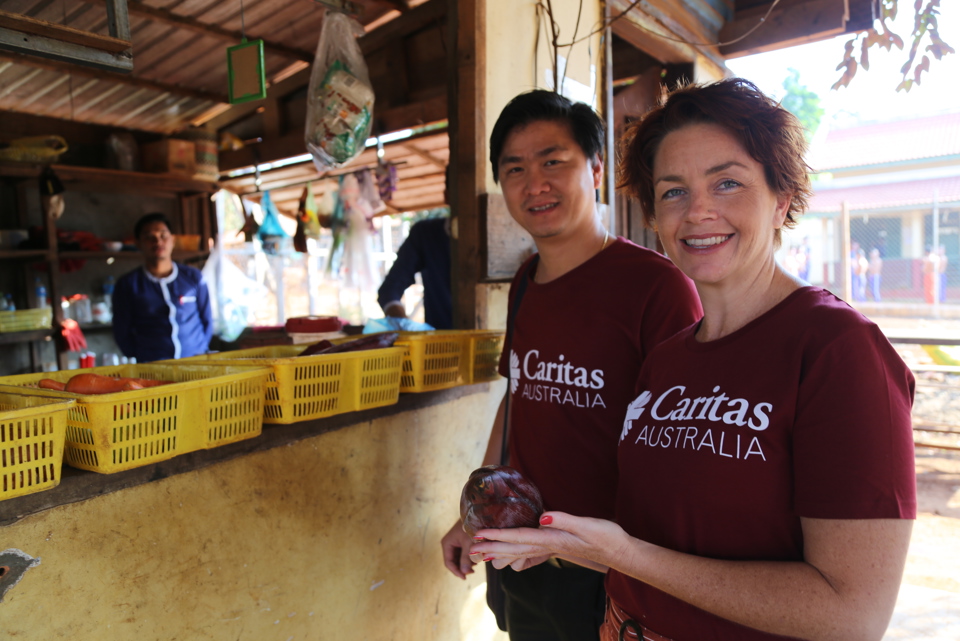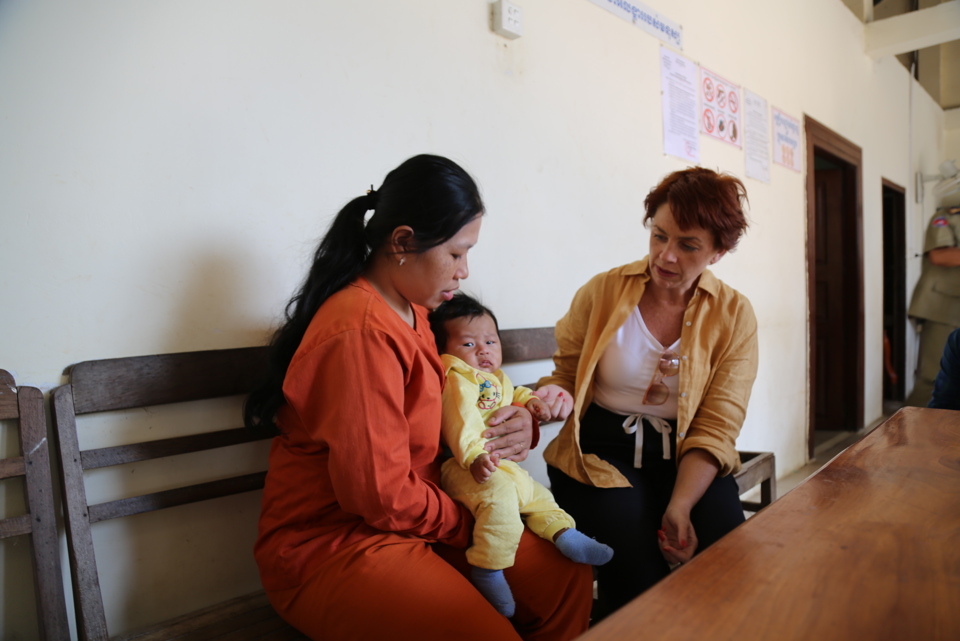
Caritas Australia CEO Kirsty Robertson with Chanthea Nou, Program Coordinator for Cambodia. Photo: Nicole Clements, Caritas Australia
World Day Against Human Trafficking
This World Day Against Trafficking in Persons on July 30, Caritas Australia celebrates its partner, Caritas Cambodia, working to help prevent human trafficking. Caritas Cambodia supports prisoners to develop the skills necessary to find meaningful work after imprisonment.
The past year has seen a rise in human trafficking due to an increase in poverty and social disadvantage from COVID-19. Human trafficking impacts millions of people all over the world, and includes forced labour, exploitative child labour, sexual exploitation and domestic servitude.
Impacts of COVID-9 on human trafficking
“COVID-19 has actually increased the dangers of trafficking, now that millions of people around the world have lost work, and we’re seeing a stark rise in poverty and school closures, as well as overwhelmed social and public services, including law enforcement in places like Cambodia where COVID-19 case numbers are rising rapidly,” says Chanthea Nou, Caritas Australia’s Program Coordinator for Cambodia and India.
“This means that it’s now easier for vulnerable people to end up being trafficked, but also that it’s now harder to seek help. Especially when people have minimal education, which makes it a lot harder to find meaningful employment. They might also be socially isolated or discriminated against.”

Caritas Australia CEO Kirsty Robertson speaking to a woman in the Cambodia Prison Program. Photo: Caritas Australia.
Preventing human trafficking through vocational training
One of the ways that Caritas Australia works to prevent human trafficking is through a Comprehensive Prison Program run in partnership with Caritas Cambodia, which offers vocational skill training such as Khmer literacy, computer skills, sewing skills, traditional music, handicrafts, hairdressing and beauty therapy. Inmates also learn about the consequences of drug use, human trafficking and domestic violence.
“A really exciting example of somebody who’s benefited from this program is Mr Lay, who faced a lot of personal and family challenges which meant that he dropped out of school in grade seven. Unfortunately, he ended up in the drugs trade, and he was sentenced for two years in prison.”
“He would ordinarily be at risk of human trafficking after being released from prison. But instead, while in prison, through our partner he was able to learn construction skills, and was even able to construct a building in prison to reinforce these skills. Once he left prison, Caritas Cambodia was able to support him with some basic construction equipment like a cement mixer.”
“Mr. Lay is now running a successful construction business, and was even married earlier this year. His story shows how we can work with people to make sure that they get the opportunities they need to build a more positive future, which helps prevents serious issues like human trafficking and exploitation in the long-term.”
Over the past year, over 200 inmates participated in vocational skills training in the Cambodia Comprehensive Prison Program.

















